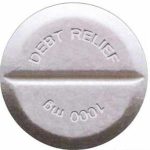The Road to Redemption: Understanding and Overcoming Bankruptcy Stigma
The Path to Financial Fresh Start
Contrary to popular belief, bankruptcy can be a viable and constructive option for many individuals facing overwhelming debt. It provides a legal framework for financial rehabilitation, allowing individuals to start anew. Very often the period of bankruptcy is only 1 year. However, it’s essential to approach the decision with a clear understanding of its implications, especially for property owners.
Property Owners Beware: Equity and Bankruptcy
The Equity Dilemma
For property owners, the decision to declare bankruptcy comes with a unique set of considerations. While bankruptcy can be a lifeline for those drowning in debt, property owners with equity should tread carefully. The stark reality is that they might be required to sell their property as part of the bankruptcy process. This potential consequence underscores the importance of assessing individual circumstances before opting for bankruptcy.
In 2018, a total of 18,146 individuals entered Individual Voluntary Arrangements (IVAs), and surprisingly, nearly half of them, 9,012 people, didn’t own any property. There are a few other reasons that a person may choose an IVA over bankruptcy. However, for many of the other 9,000 odd who did not own a property, they may well have been better off financially by going into bankruptcy with usually last one year. Often the problem is that some companies are misselling IVAs to boost their profits. It is worth checking this post on what can happens to a property in bankruptcy.
Public Disclosure: Bankruptcy, DROs, and IVAs
Navigating Financial Transparency
One aspect often overlooked is the public nature of bankruptcy, Debt Relief Orders (DROs), and Individual Voluntary Arrangements (IVAs). When an individual declares bankruptcy, this information becomes accessible to the public through the Bankruptcy and Insolvency Register. DROs and IVAs share a similar fate, contributing to a transparent financial landscape.
The Impact on Financial Privacy
Understanding the public disclosure aspect is crucial for those contemplating these financial arrangements. Bankruptcy, DROs, and IVAs become part of the public record, potentially impacting one’s financial privacy. This transparency is designed to ensure accountability but requires careful consideration, especially for those who value their financial confidentiality.
Will bankruptcy affect my credit rating?
This post on Bankruptcy vs. IVA: The Credit Score Dilemma may also be of interest to you, if you are concerned about your credit rating.
Can I rebuild my credit after bankruptcy?
Absolutely. While bankruptcy has a negative impact, it’s not the end of your financial story. With responsible financial behaviour, you can start rebuilding your credit. This may involve obtaining a secured credit card, making timely payments, and demonstrating improved financial management over time.
Conclusion: Navigating the Landscape of Financial Recovery
In conclusion, the journey towards financial recovery involves navigating a complex landscape. Bankruptcy, often unfairly stigmatised, can be a legitimate option for many facing insurmountable debt. However, the decision requires a nuanced understanding, particularly for property owners with equity at stake. If you are a company director or business owner, then you need to research further on what impact bankruptcy will have.
Debt help companies, driven by their own motivations, may steer individuals away from bankruptcy without considering their unique circumstances. Recognising this conflict of interest is pivotal for making informed decisions. It is also worth mentioning that even Debt Help Charities are in on the act or misselling IVAs.
For property owners, the equity dilemma adds a layer of complexity. While bankruptcy can provide relief, the potential necessity of selling property underscores the need for careful deliberation.
Finally, the public disclosure aspect emphasises the importance of financial transparency. Bankruptcy, DROs, and IVAs are not hidden from the public eye, and individuals should weigh the impact on their financial privacy.
In the pursuit of financial redemption, education is key. Armed with knowledge, individuals can overcome the stigma surrounding bankruptcy and make decisions aligned with their unique financial circumstances. The road to redemption begins with understanding and navigating the complexities of the financial landscape.
| |
How to Get Out of Debt is an eight-stage strategy that enables readers to pay off debt and fix their finances for good. This book has it all covered. | |
| |
How to Live for Free - I have done a full review on the book here: How to Live for Free | |
| |
The Money Diet - revised and updated: The ultimate guide to shedding pounds off your bills and saving money on everything! | |
 |
Pay Off Your Debt Book: Your Ultimate Financial Planner and Budget Companion for Managing Money Discover the Essential Debt Management and Budgeting Tool for Financial Success | |





